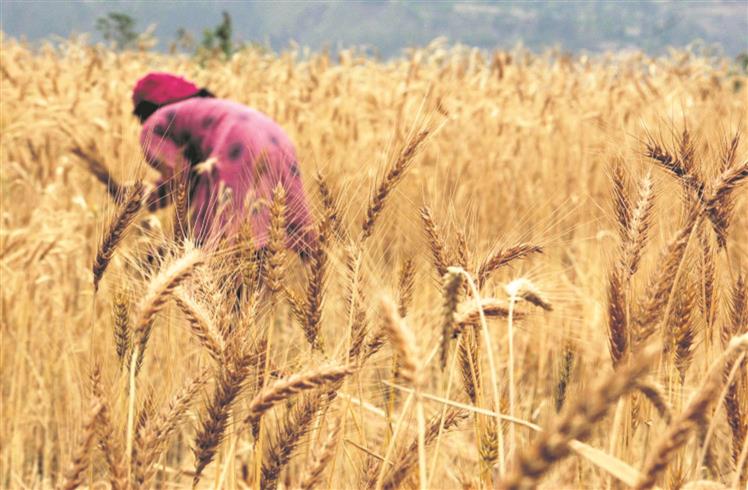Govt may hike rabi crops’ MSP by 2-7%Centre may raise rabi crop MSP by 2-7% for 2024-25 marketing seasonGovt may hike rabi crops’ MSP by 2-7%

With Lok Sabha and state assembly polls approaching, the Centre could raise the minimum support price (MSP) of six rabi crops, with hikes ranging from 2 per cent to 7 per cent, for the 2024-25 marketing season, according to a report by Mint.
In 2023, MSP for wheat was raised by 5.5 per cent from the previous year to Rs 2,125 per quintal (100 kg), whereas the minimum price of Masur, one of the two key winter pulses, saw a significant 9.1 per cent hike to Rs 6,000 per quintal.
An official was quoted as saying that MSP for wheat and Masur in the next season could be hiked by around 7 per cent to Rs 2,275-2,300 and Rs 6,425-6,450 a quintal, respectively.
MSP for oilseeds such as rapeseed and mustard could be raised by 3.6-4 per cent to Rs 5,650-5,700 per quintal, whereas safflower MSP could be hiked by 2.6-3 per cent to Rs 5,800-5,850 per quintal.
Chana’s MSP could be raised by 2 per cent to Rs 5,440-5,475 per quintal and barley could see a 6.6 per cent hike to Rs 1,850-1,900 per quintal. The government had raised the MSP of chana by 2 per cent and barley by 6.1 per cent for the 2023-24 rabi marketing season. Agricultural produce during the rabi season contributes to almost half of India’s total foodgrains output.
The official told Mint that the Commission for Agricultural Costs and Prices (CACP) has submitted its recommendations, and the cabinet note has been sent to departments for their comments.
The final decision on MSP will rest with the Cabinet Committee on Economic Affairs (CCEA). On the recommendation of CACP, the government sets MSP of kharif and rabi crops in June and October, respectively.
Recently, the Centre announced various measures, including export curbs, stock limits, and open market sales to tame food inflation before General elections, which are set to take place in 2024.
What is MSP?
MSPs are the prices at which the Centre buys certain crops from farmers to insure them against any sharp decline in prices. It is a component of the Agriculture Price Policy, and it aims to ensure support prices to farmers and affordable prices to the consumer.
The factors taken into consideration for fixing MSP include cost of production, domestic and international prices, demand-supply conditions, and inter-crop price parity.














